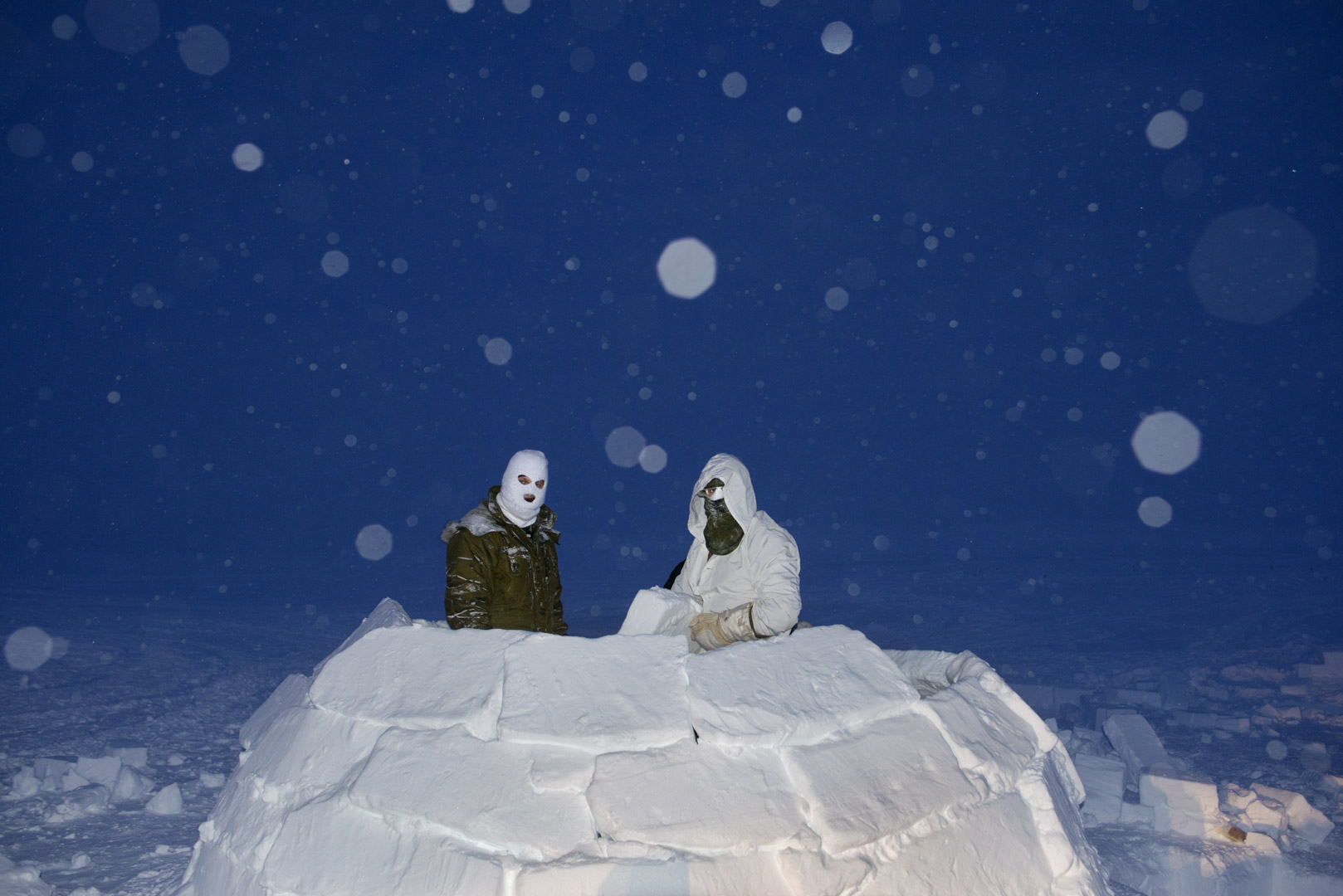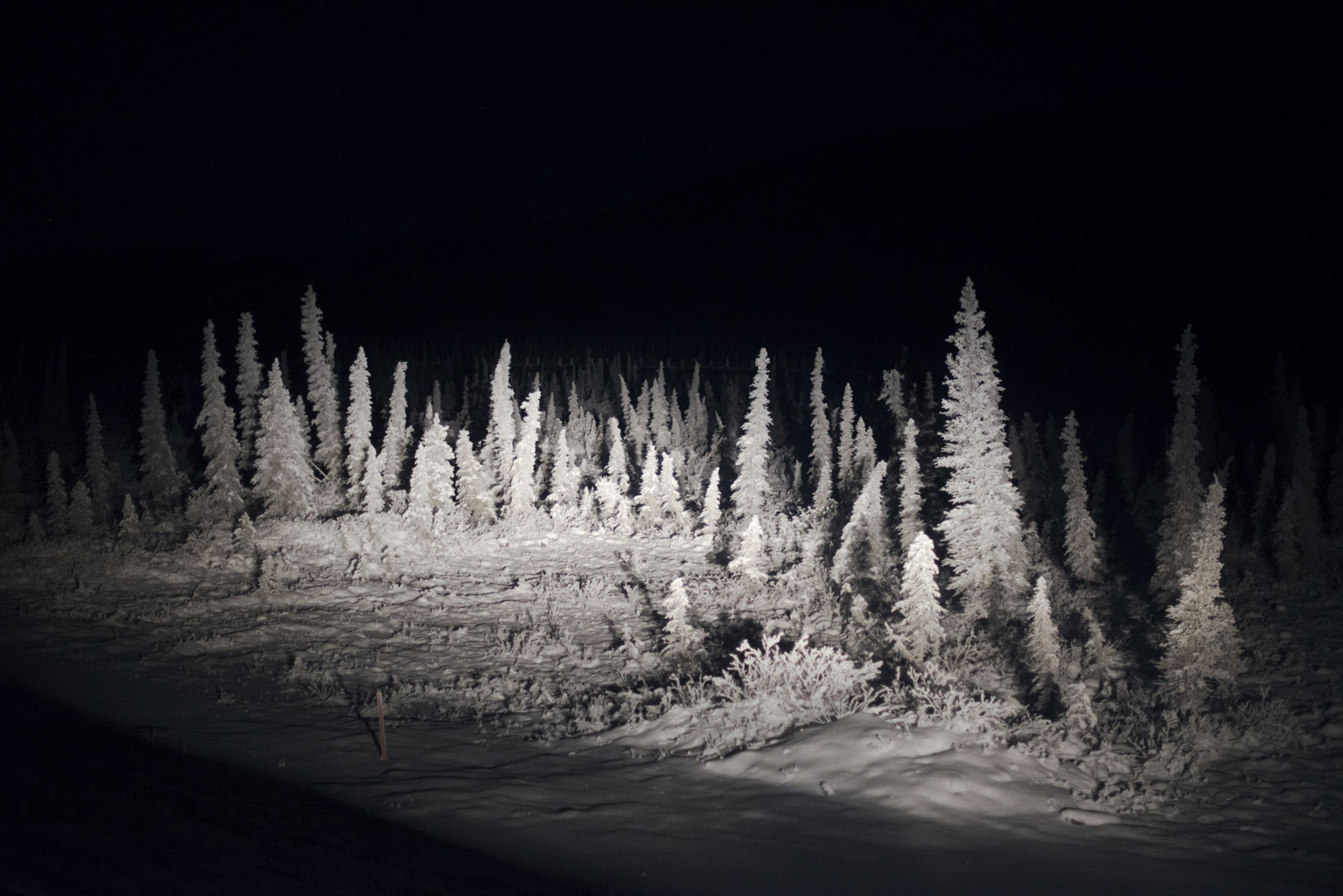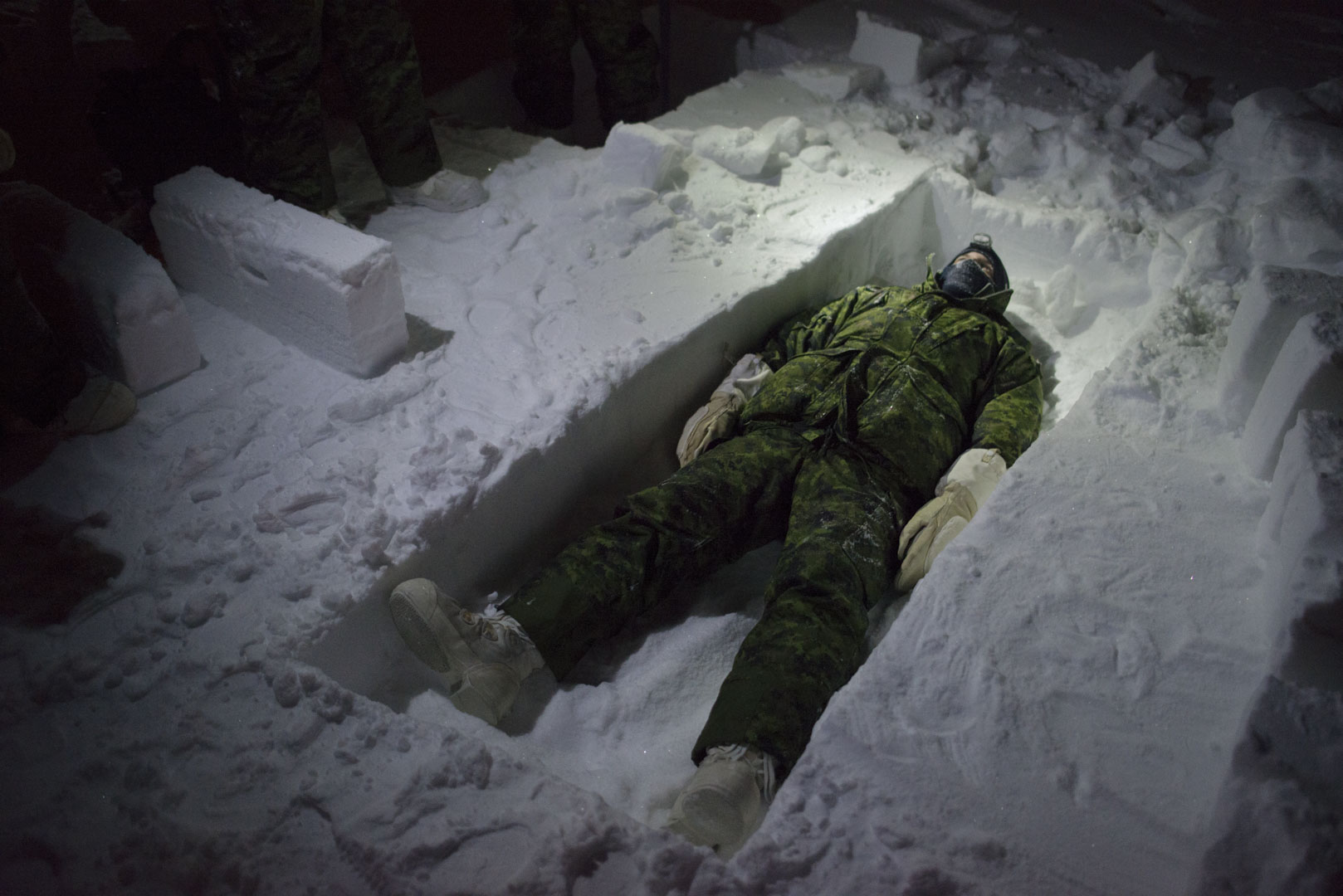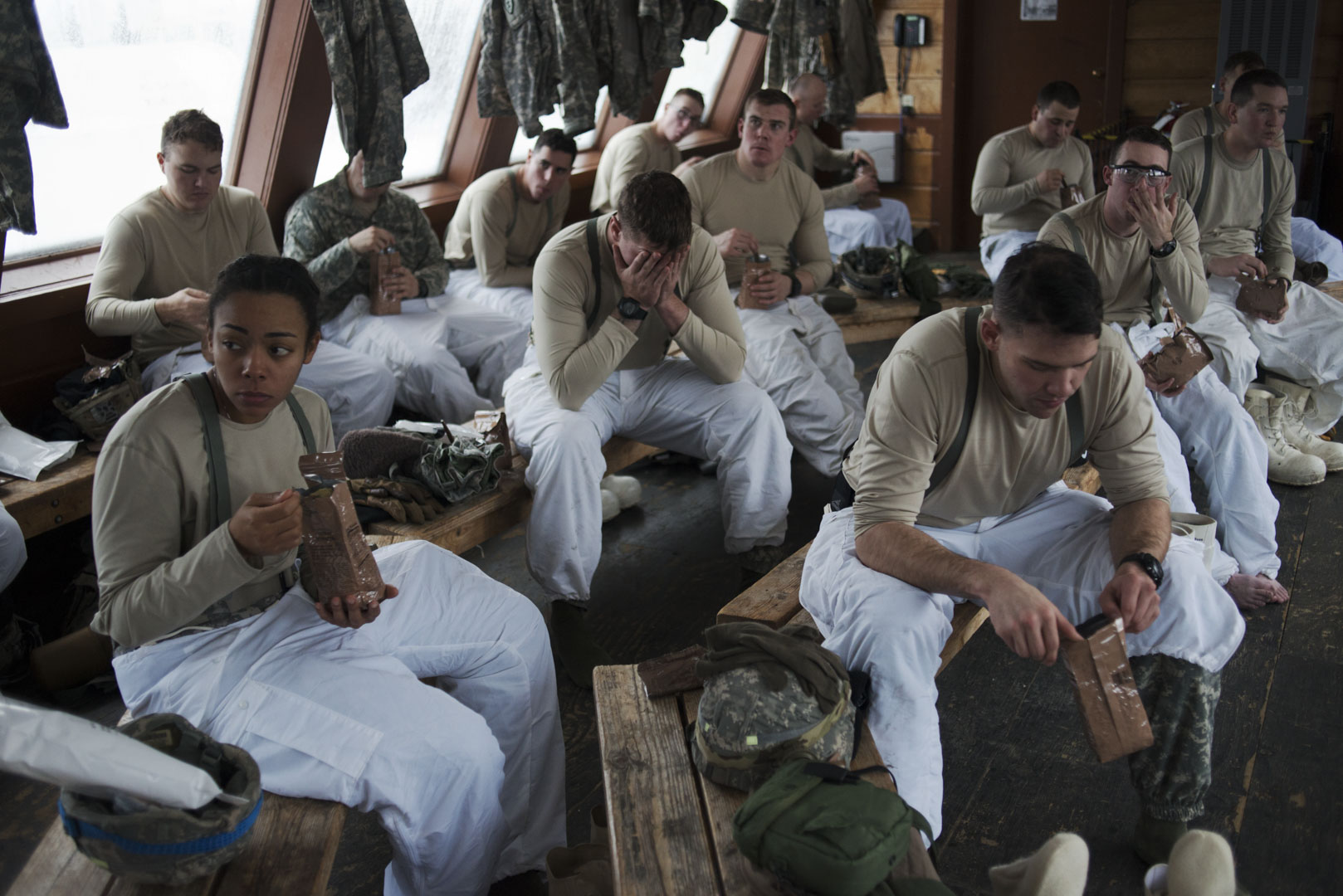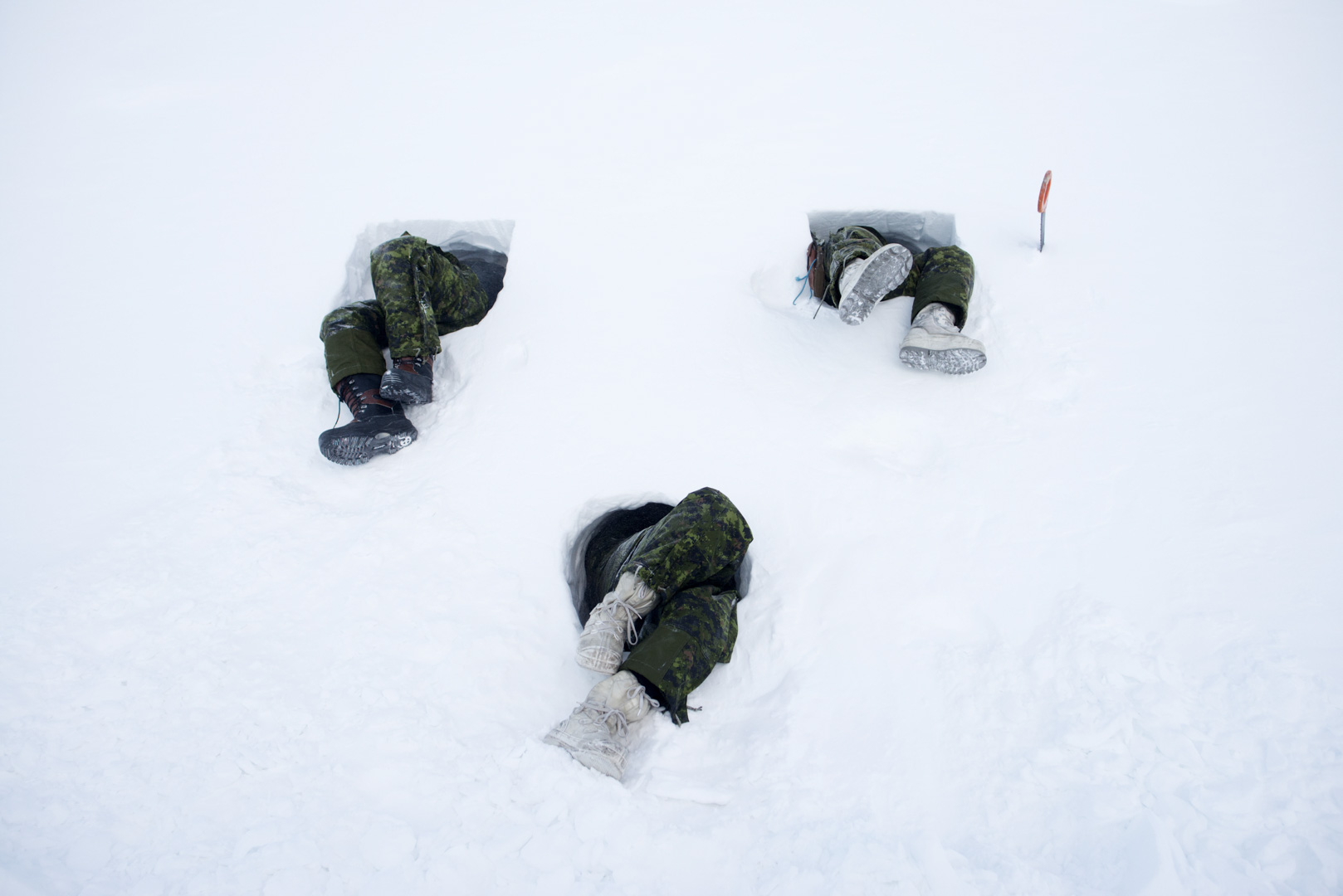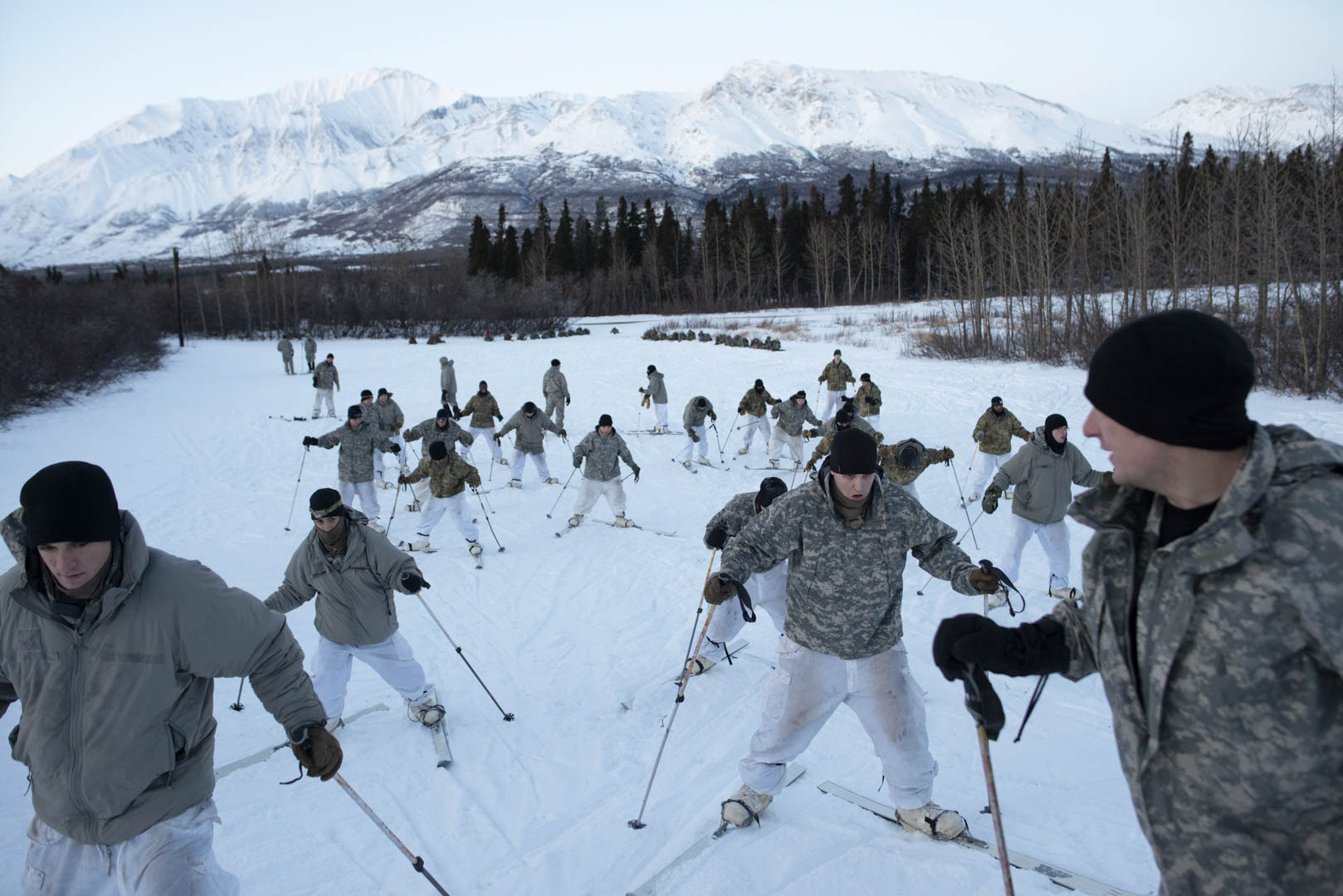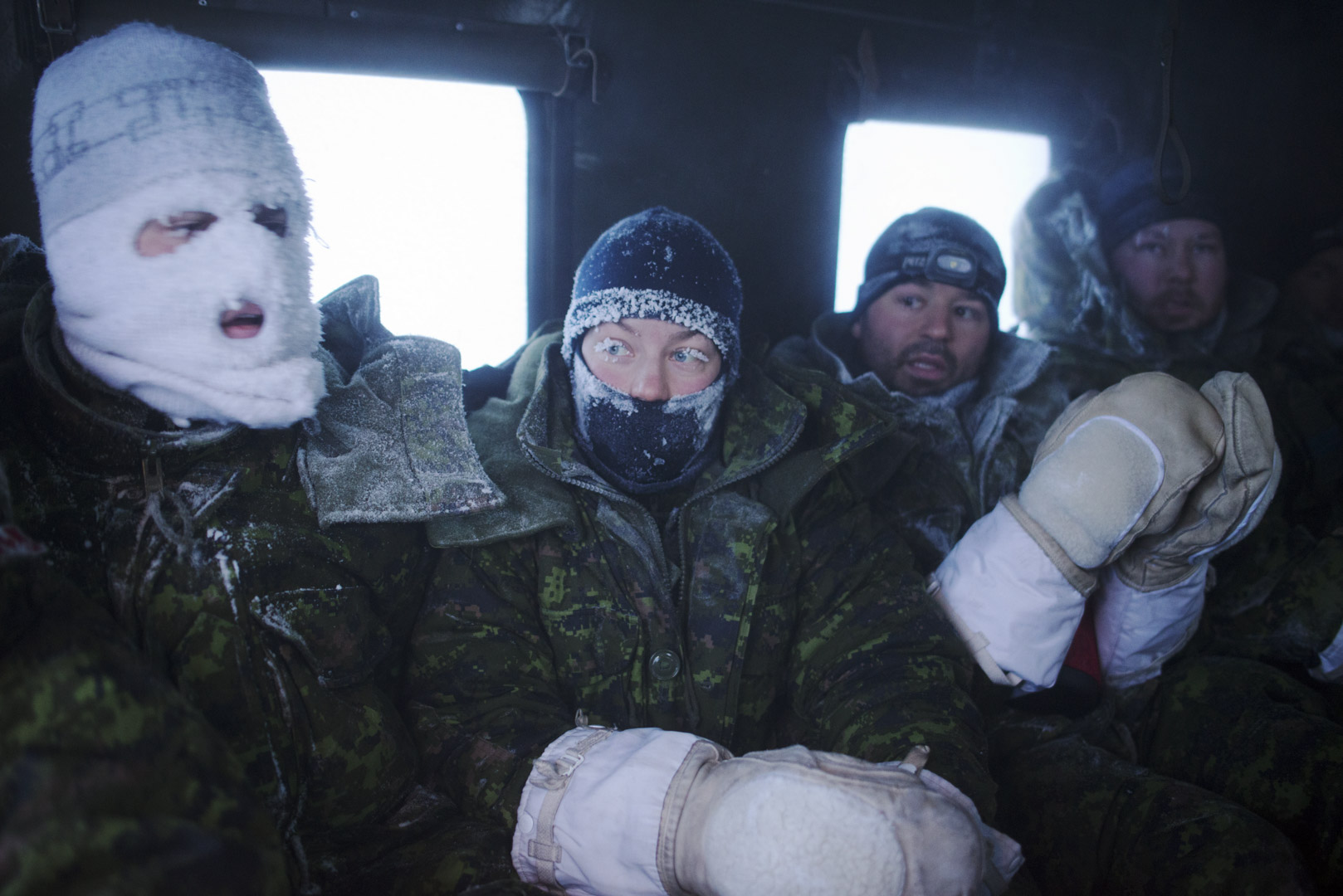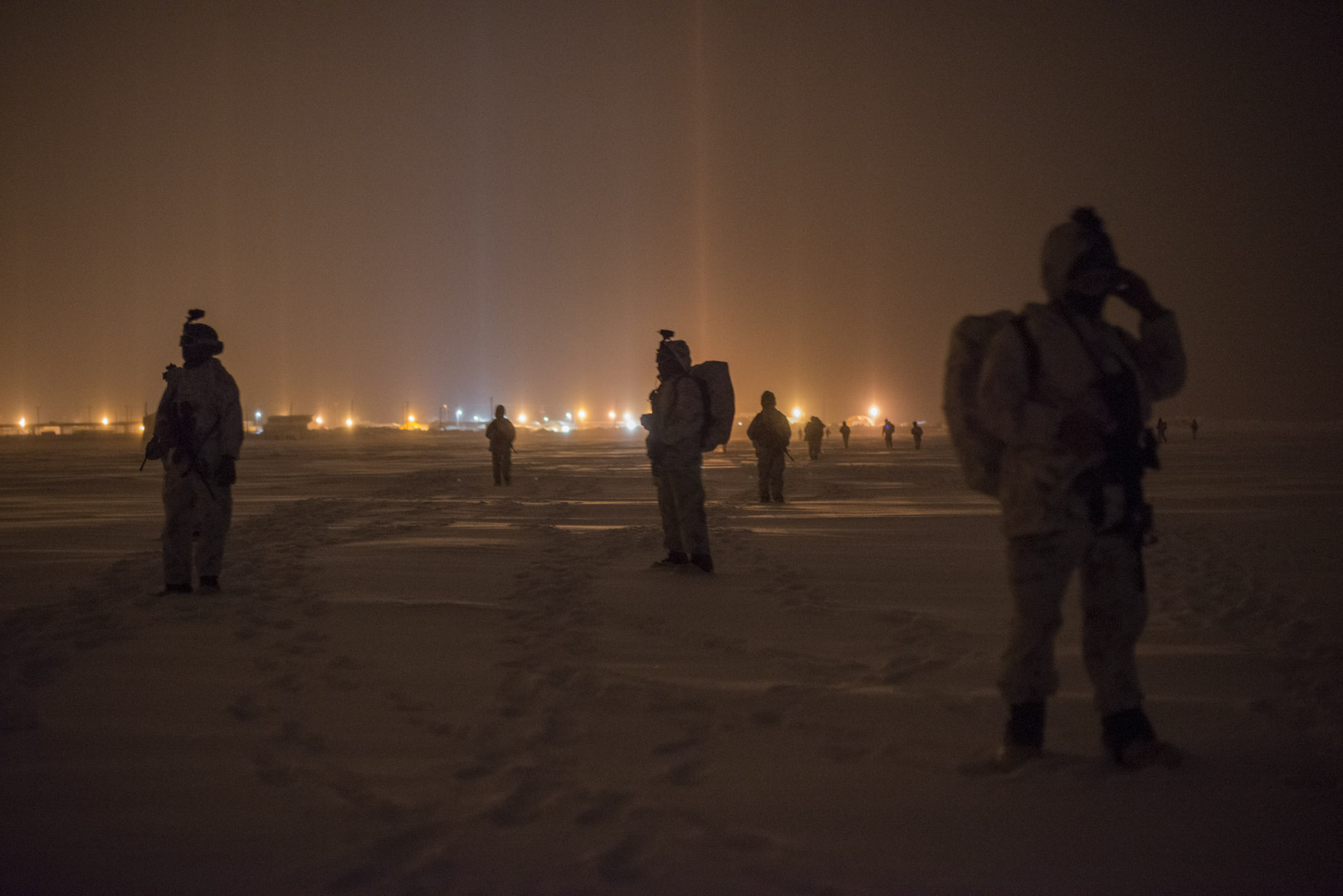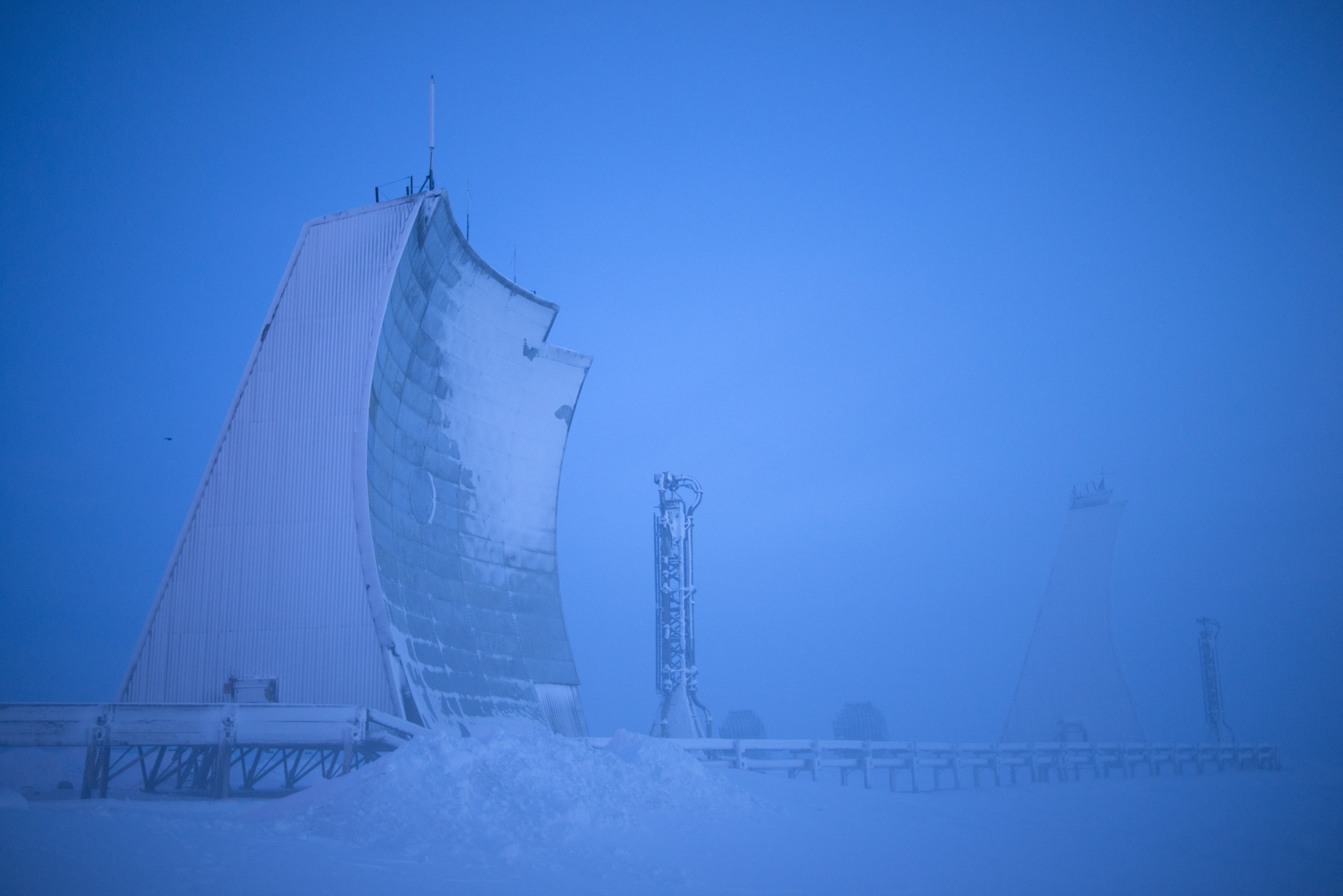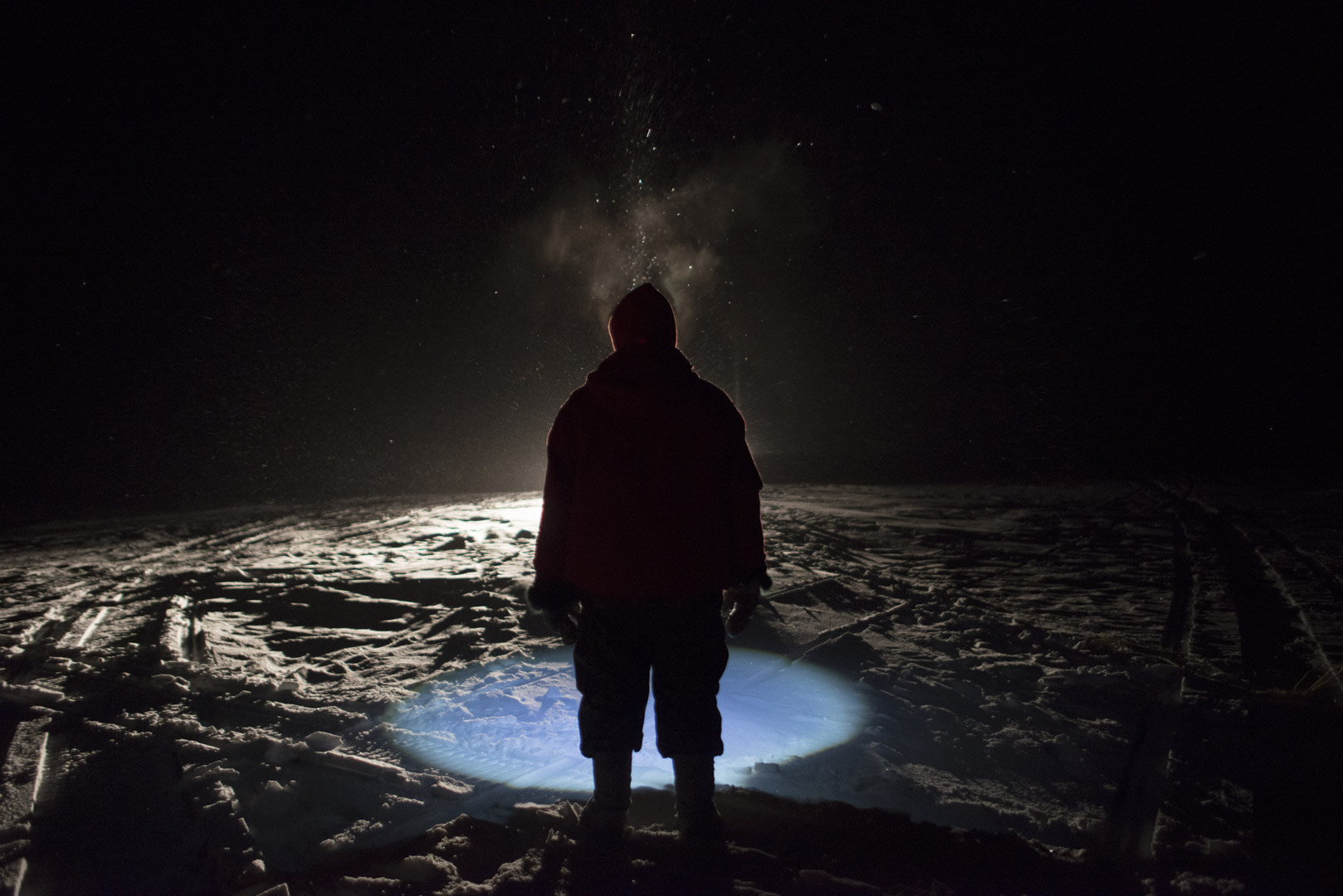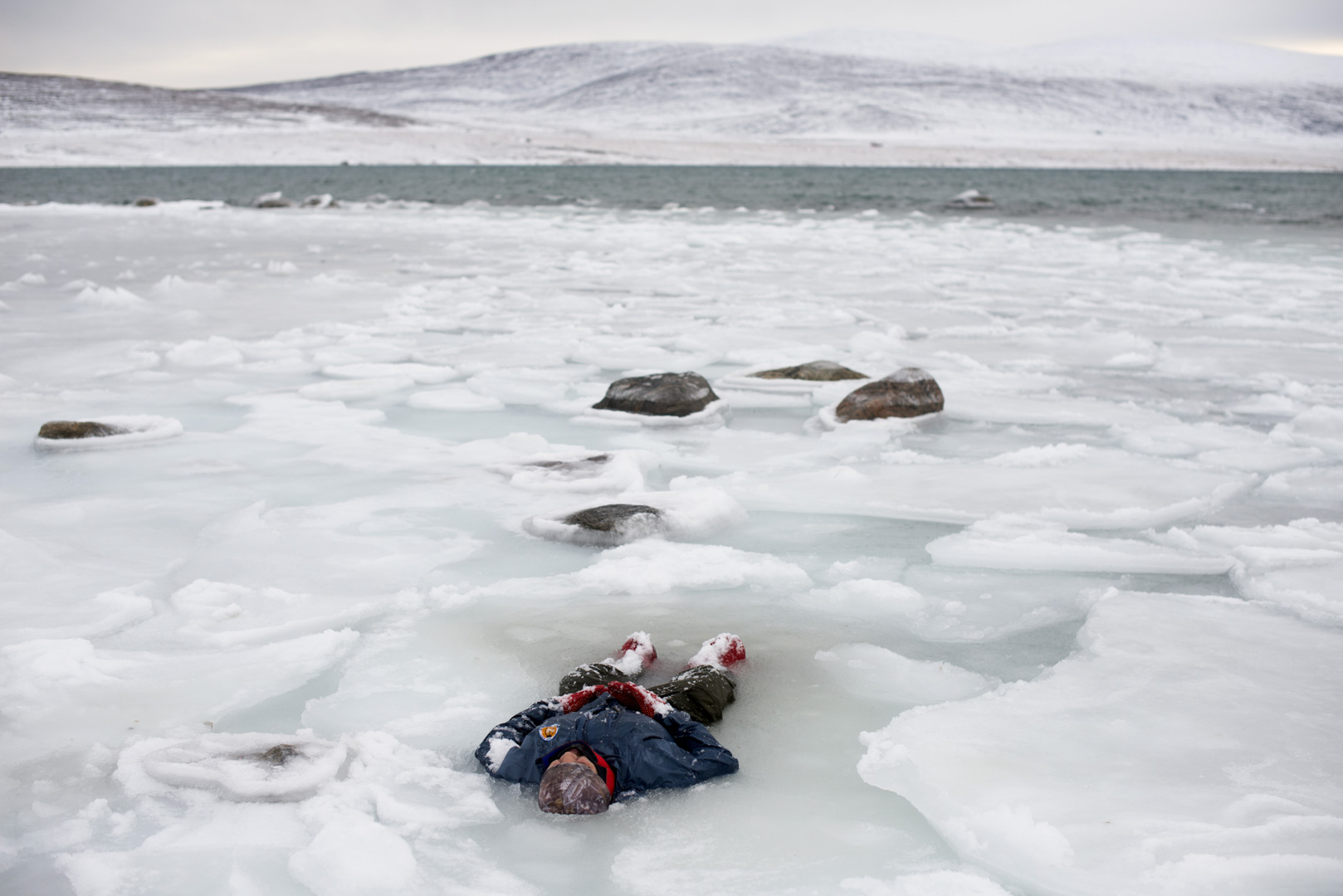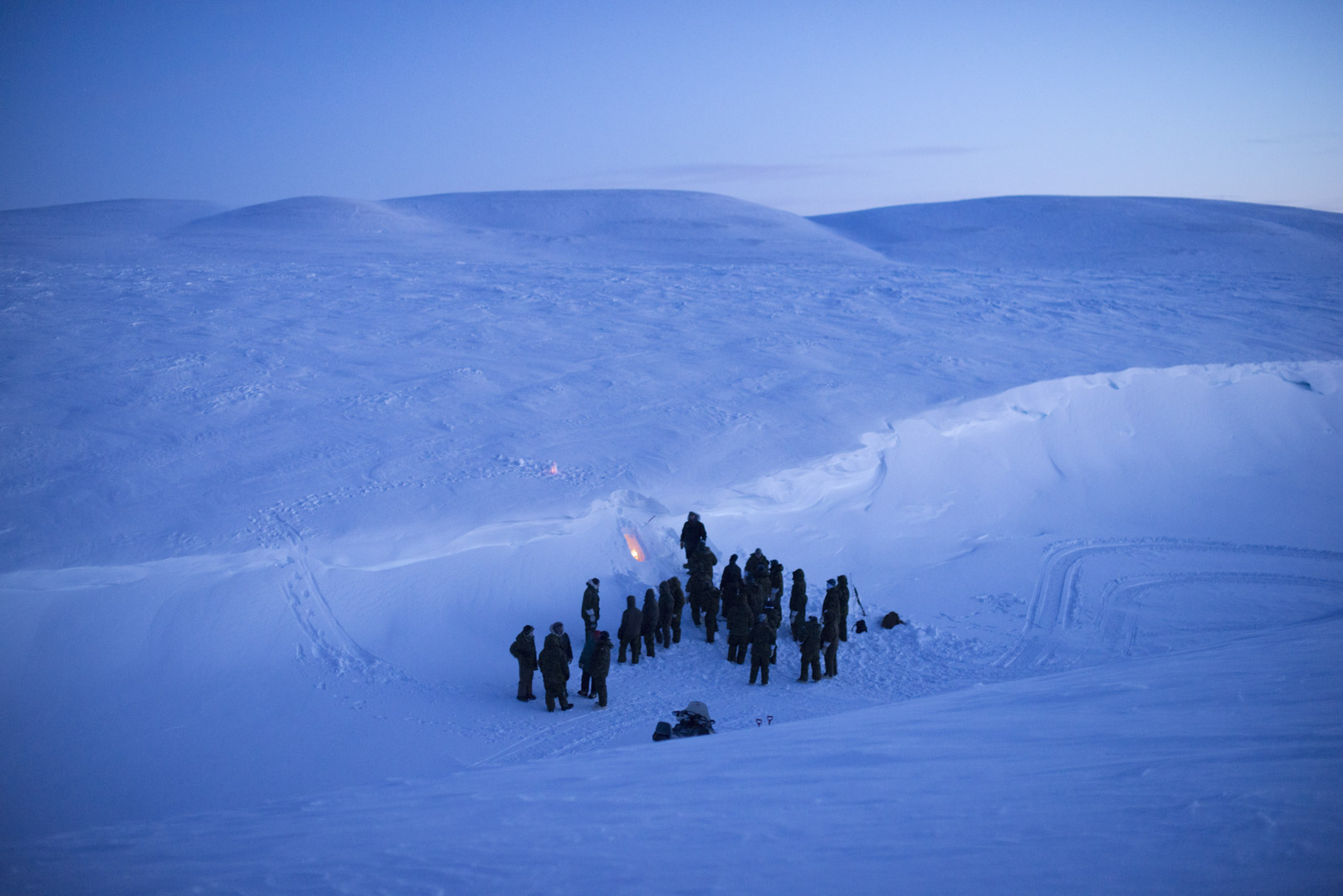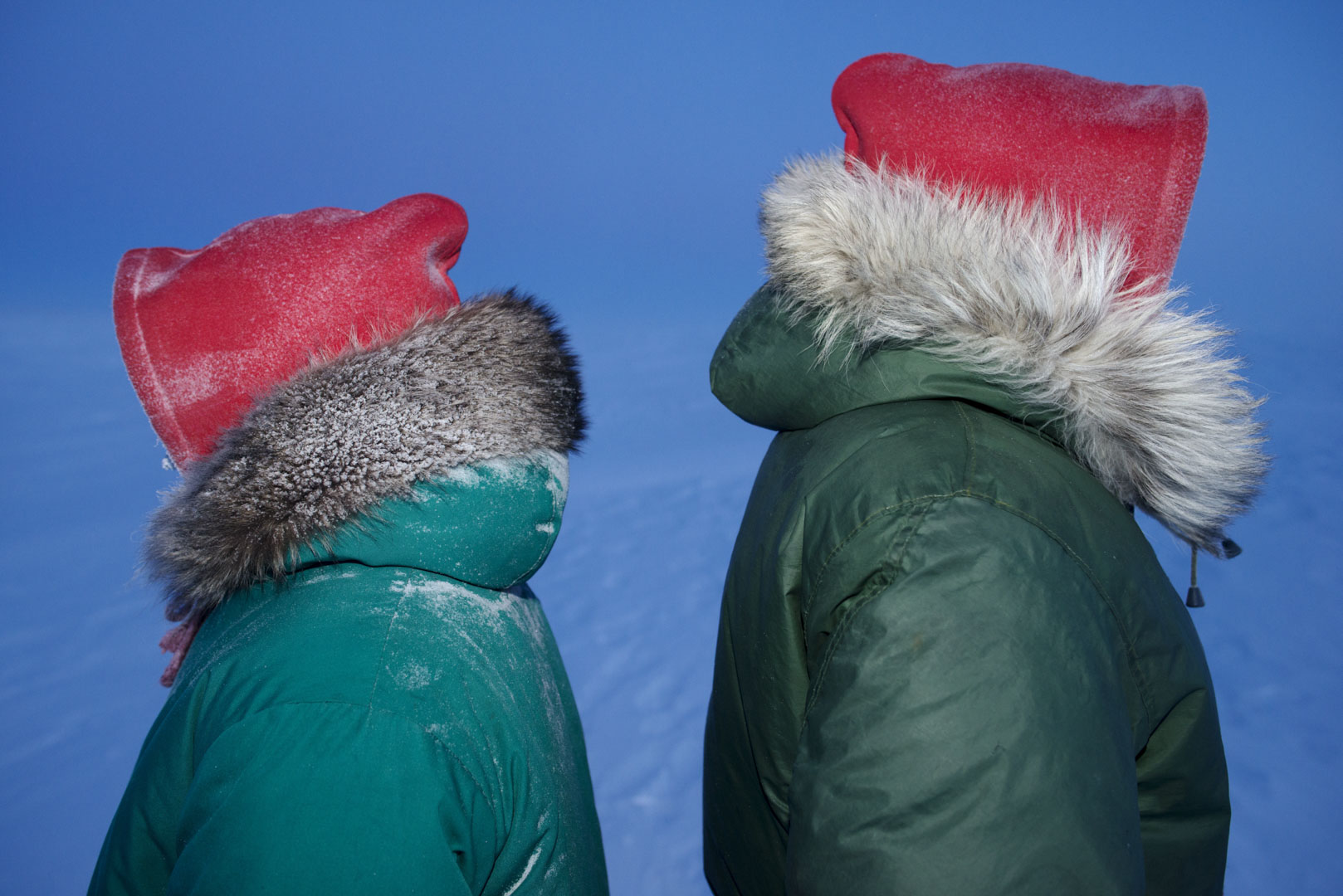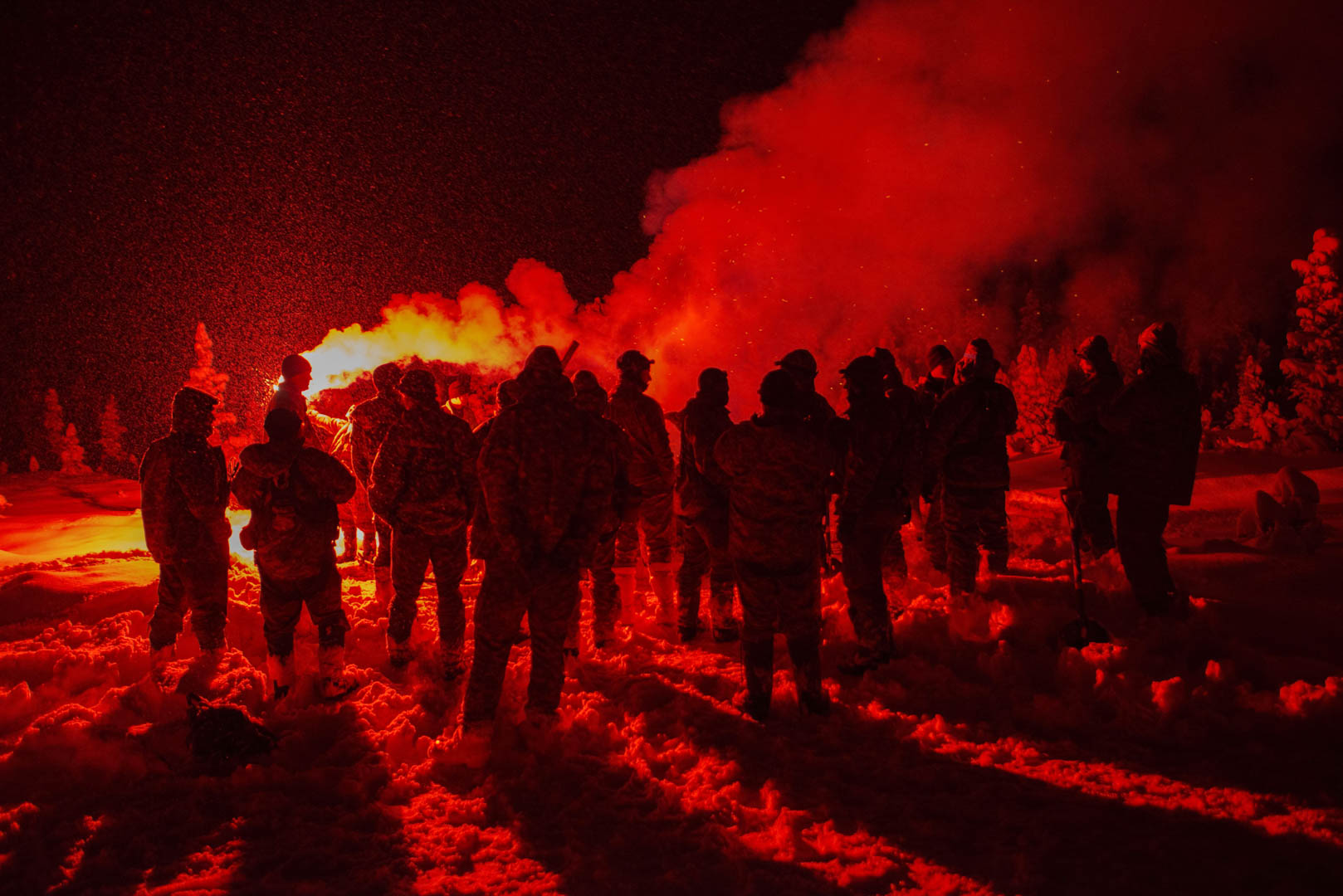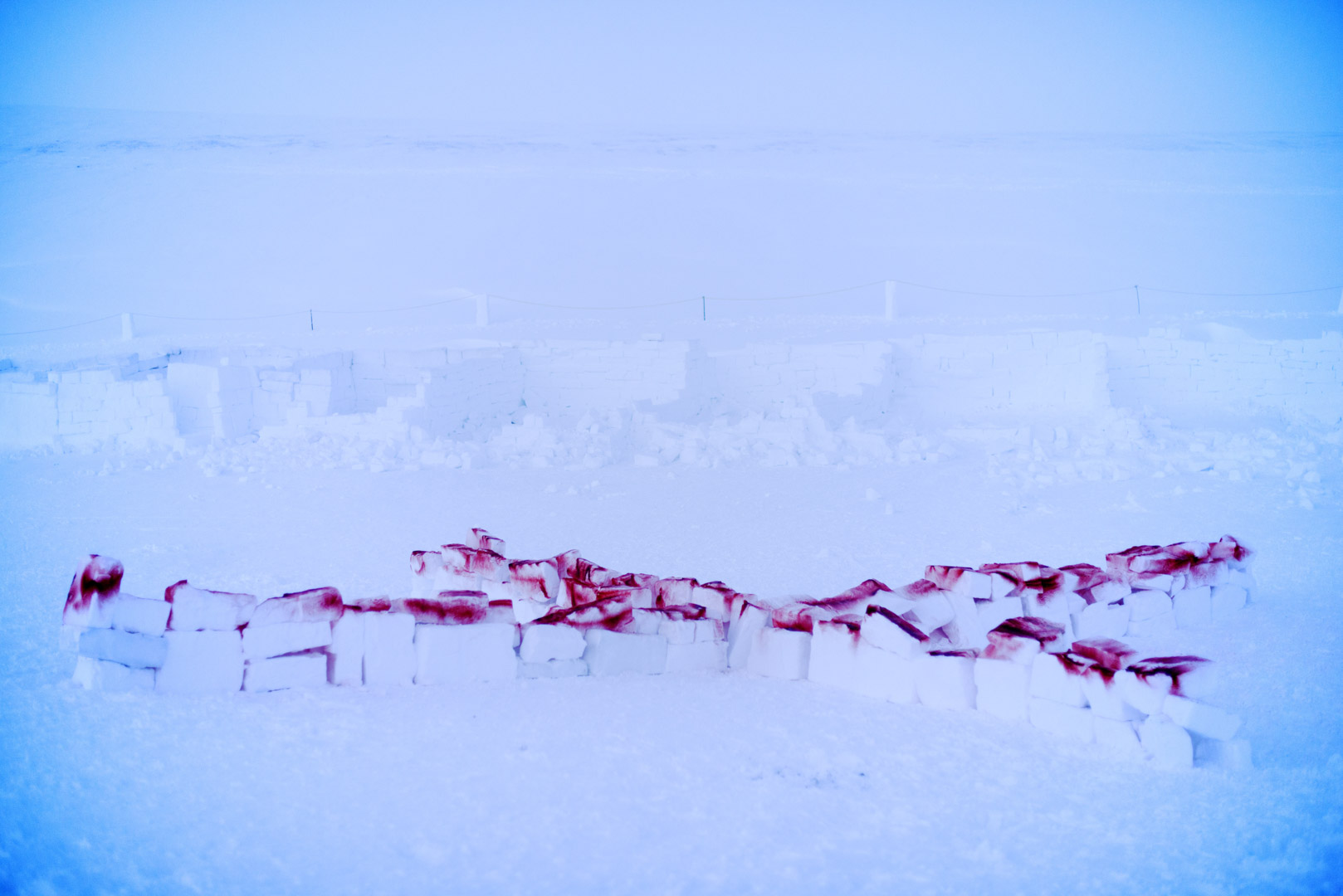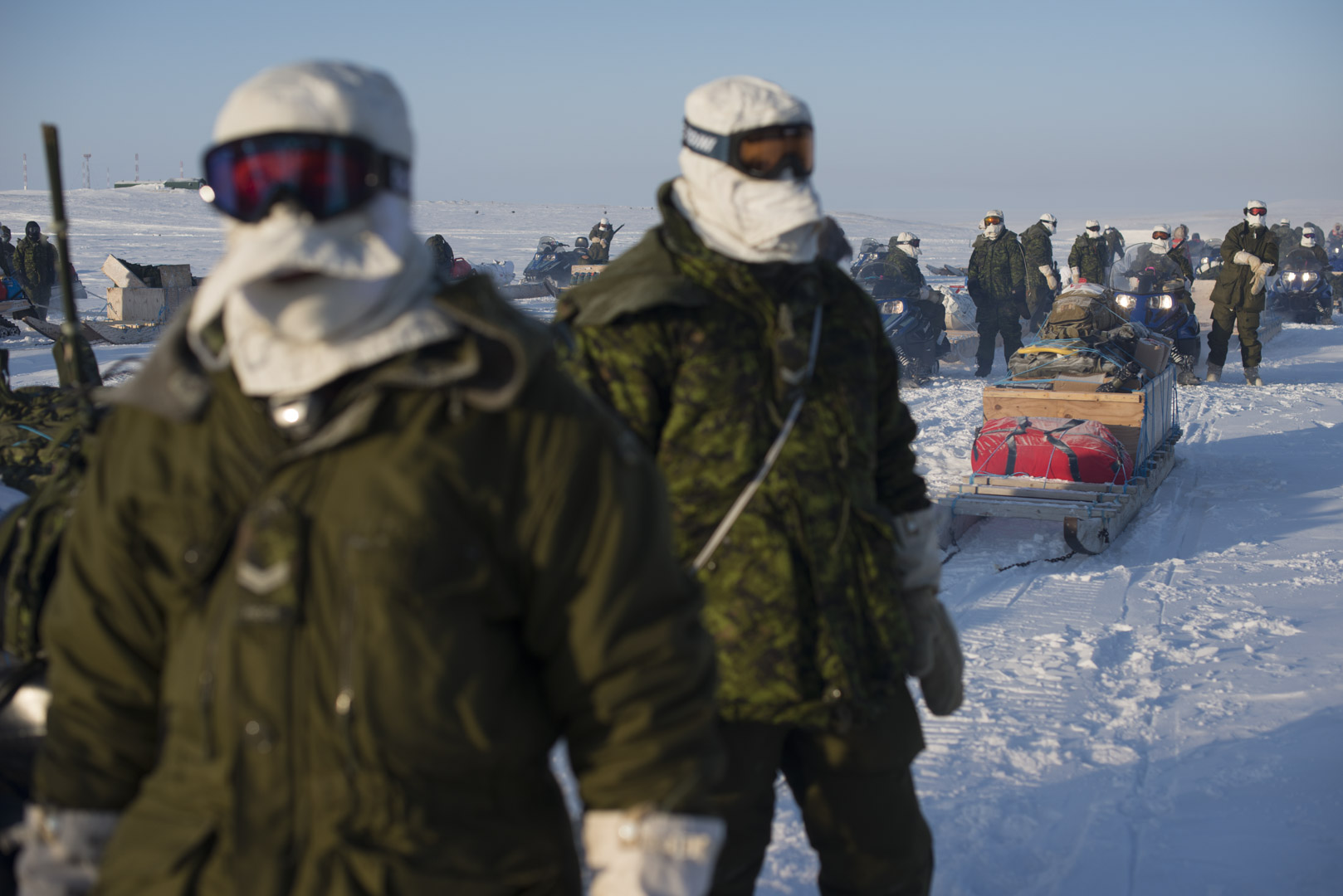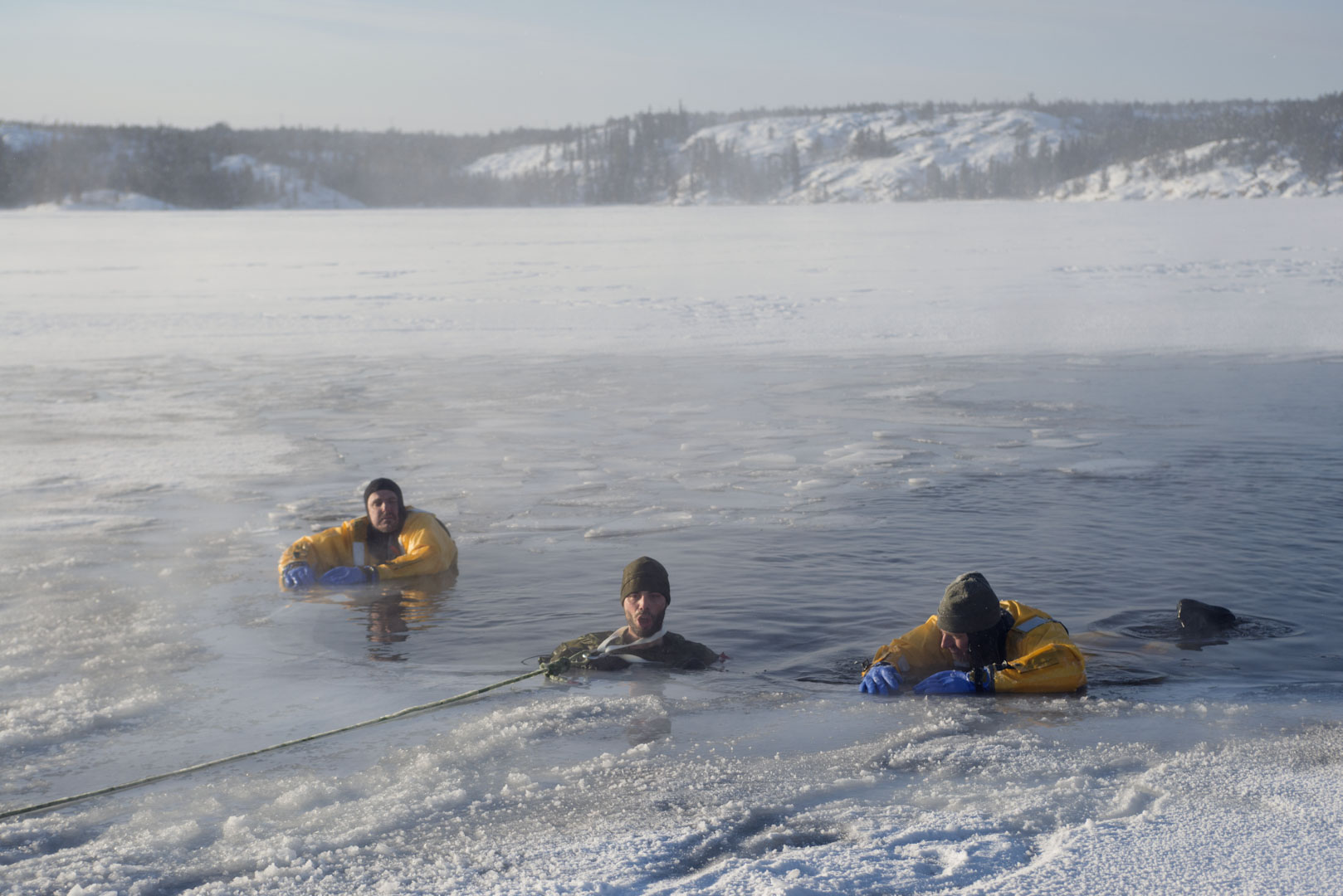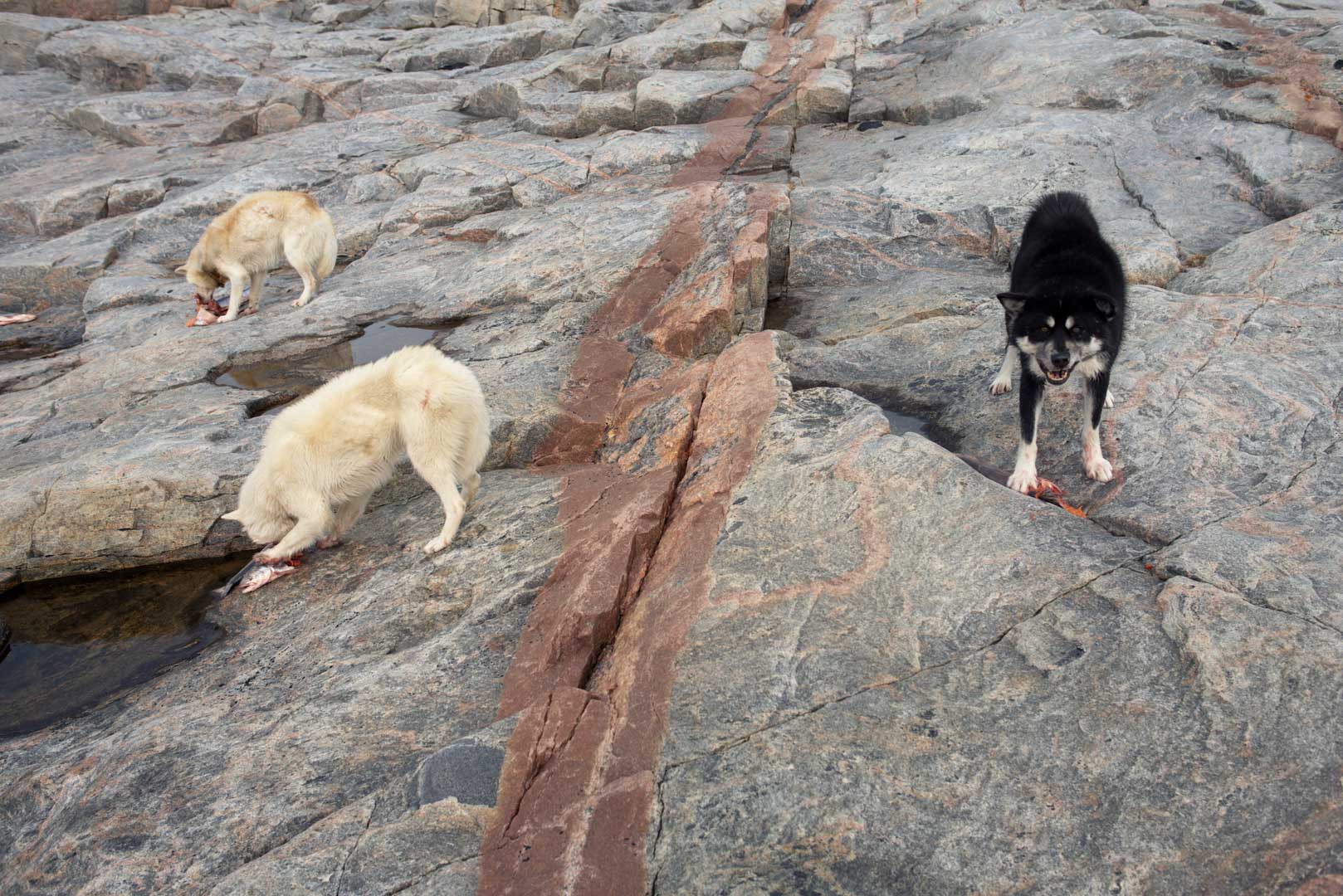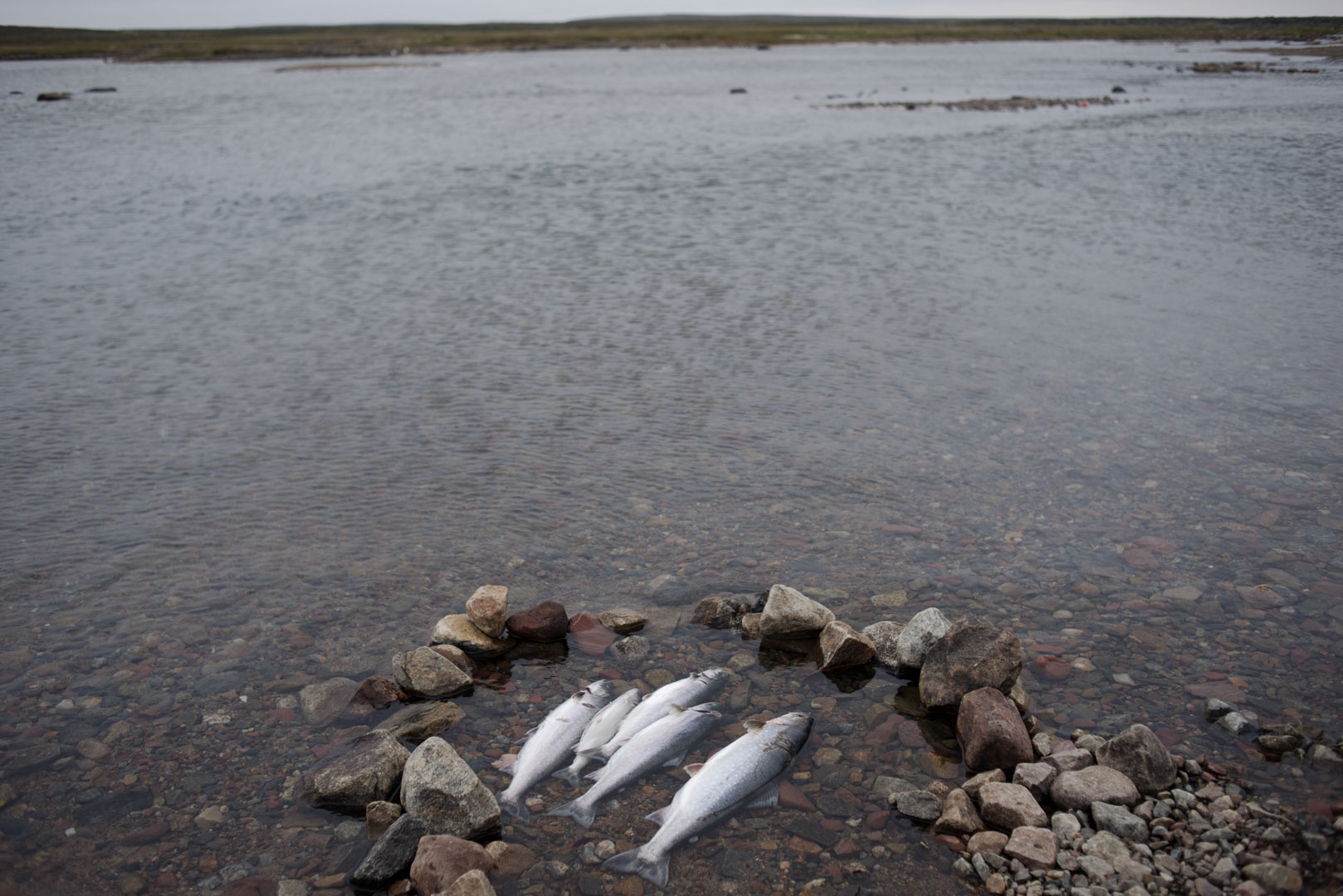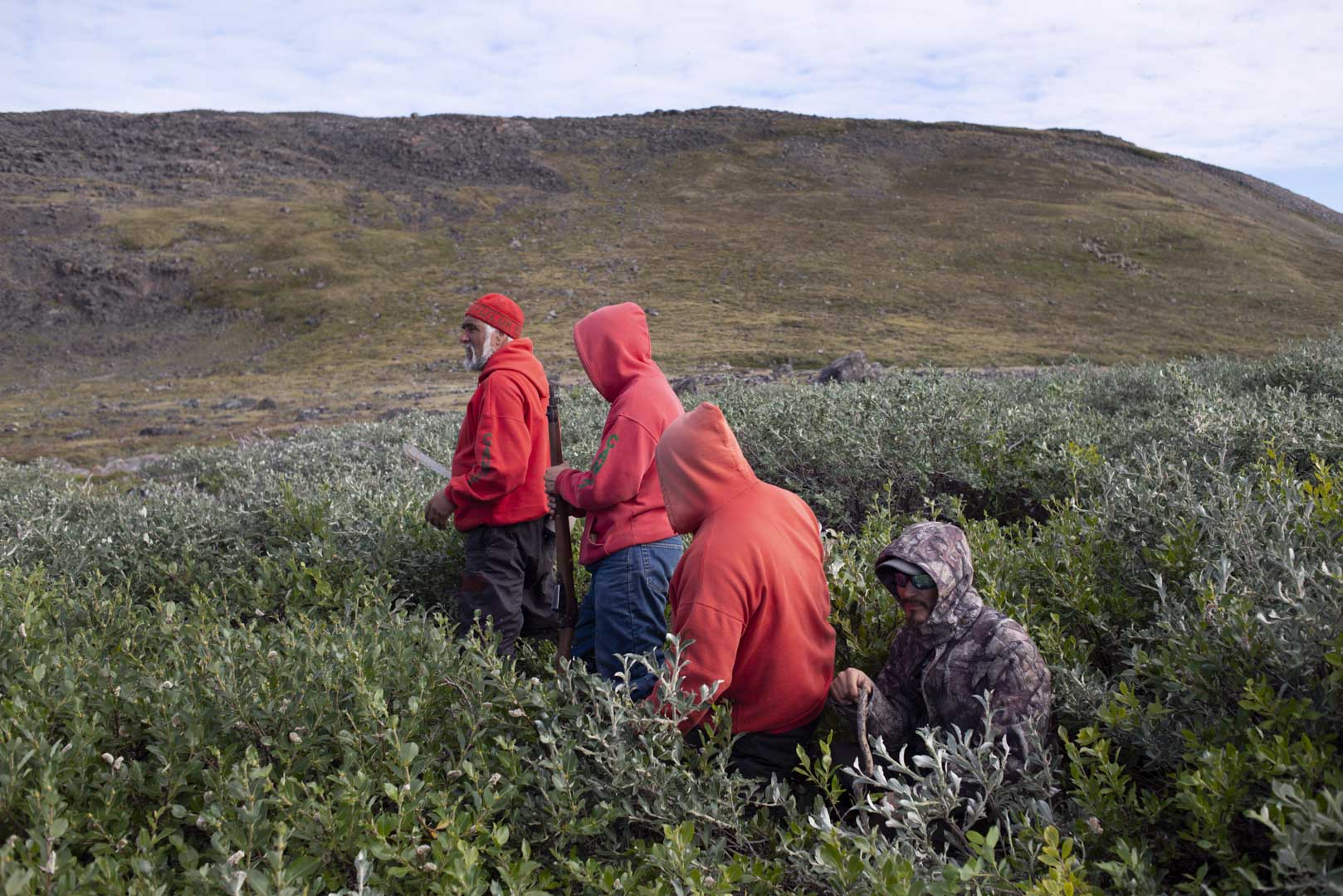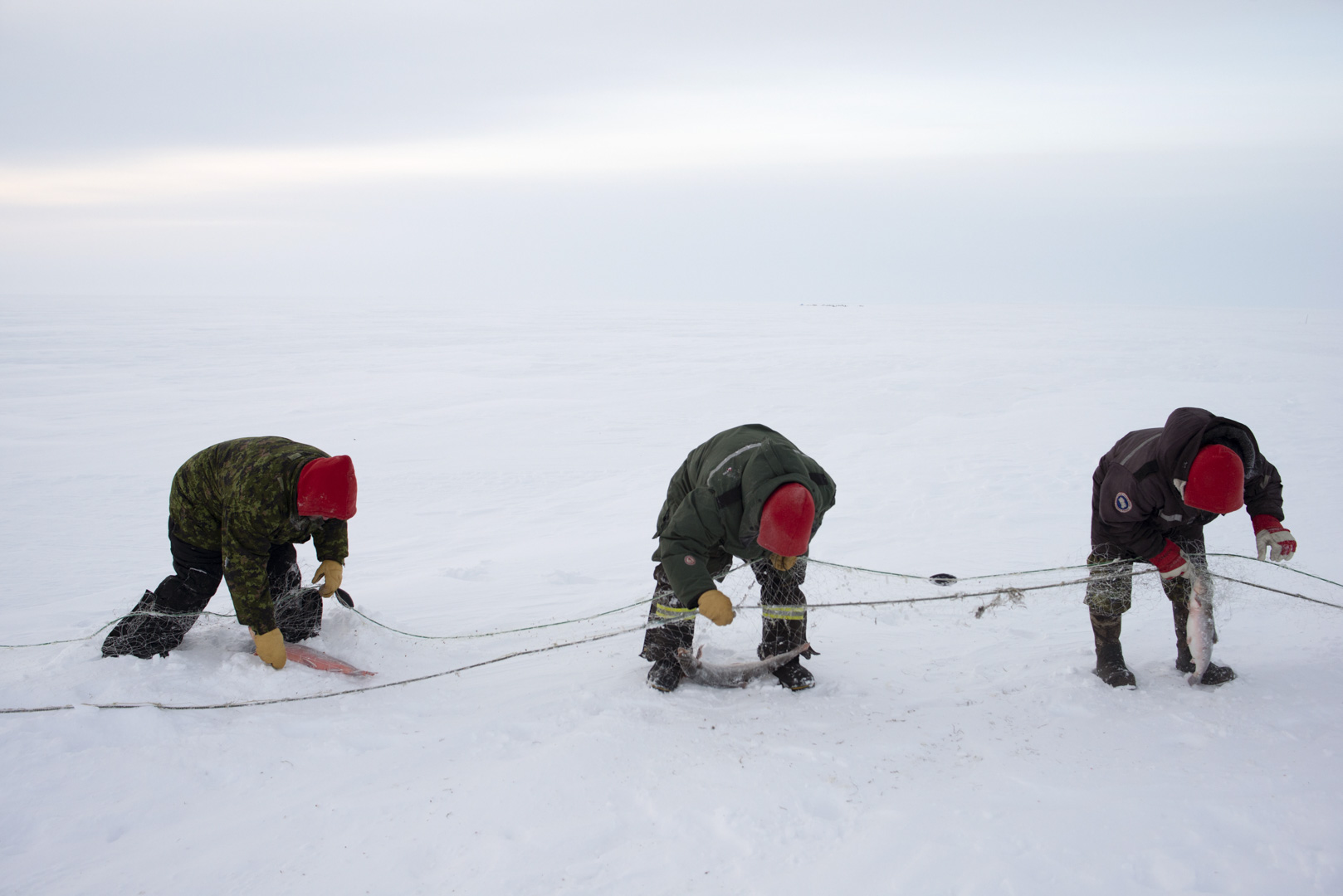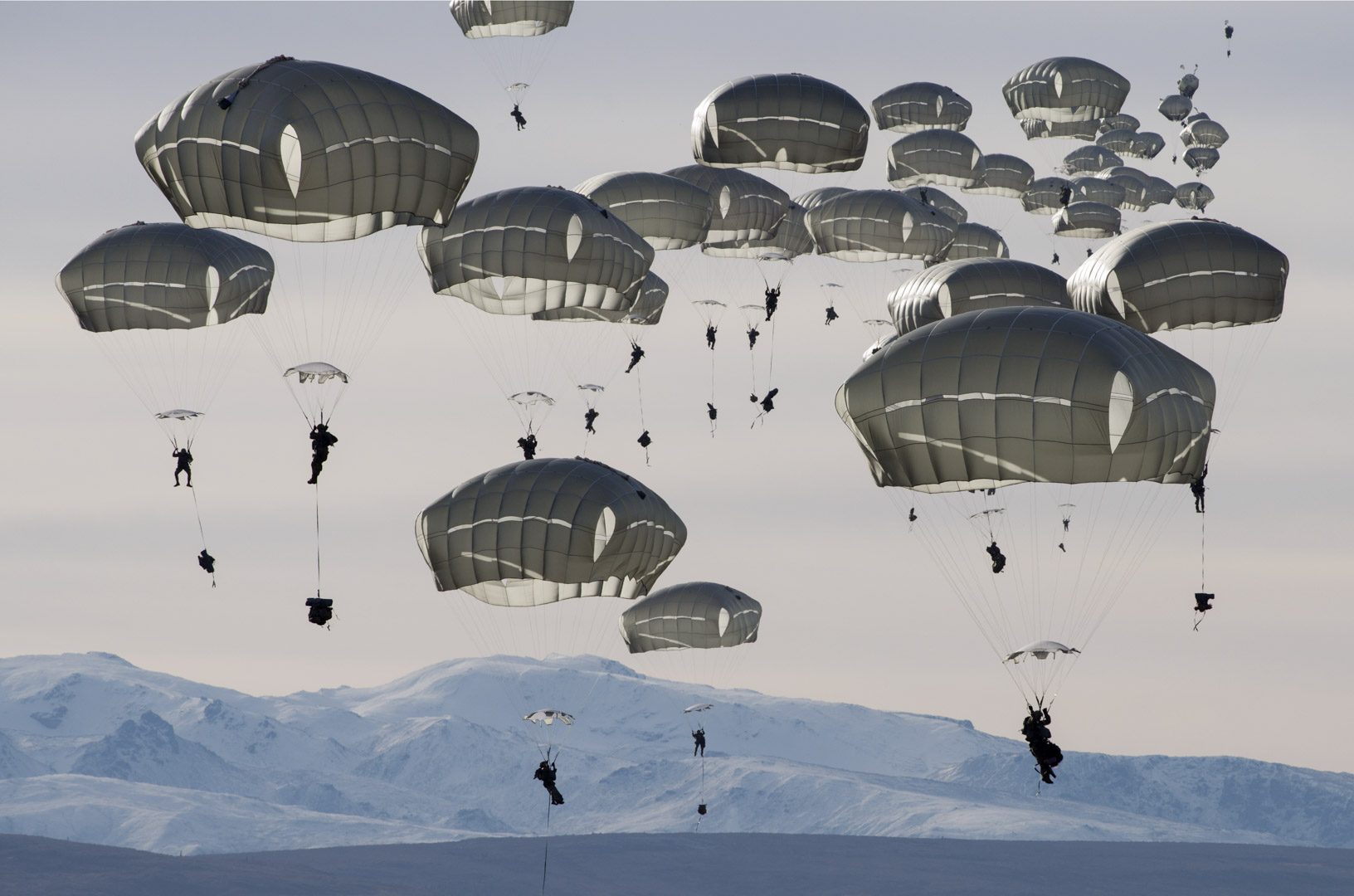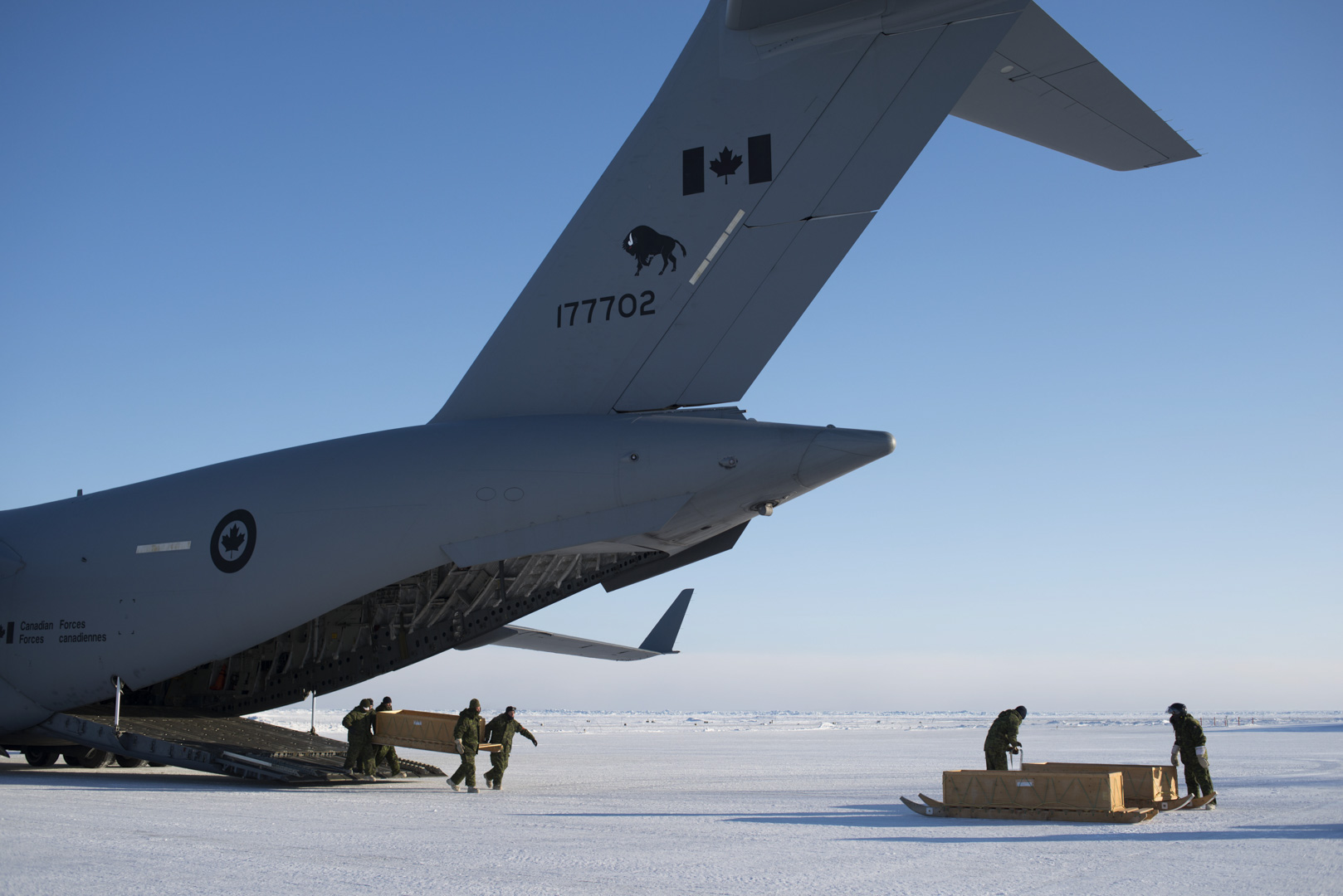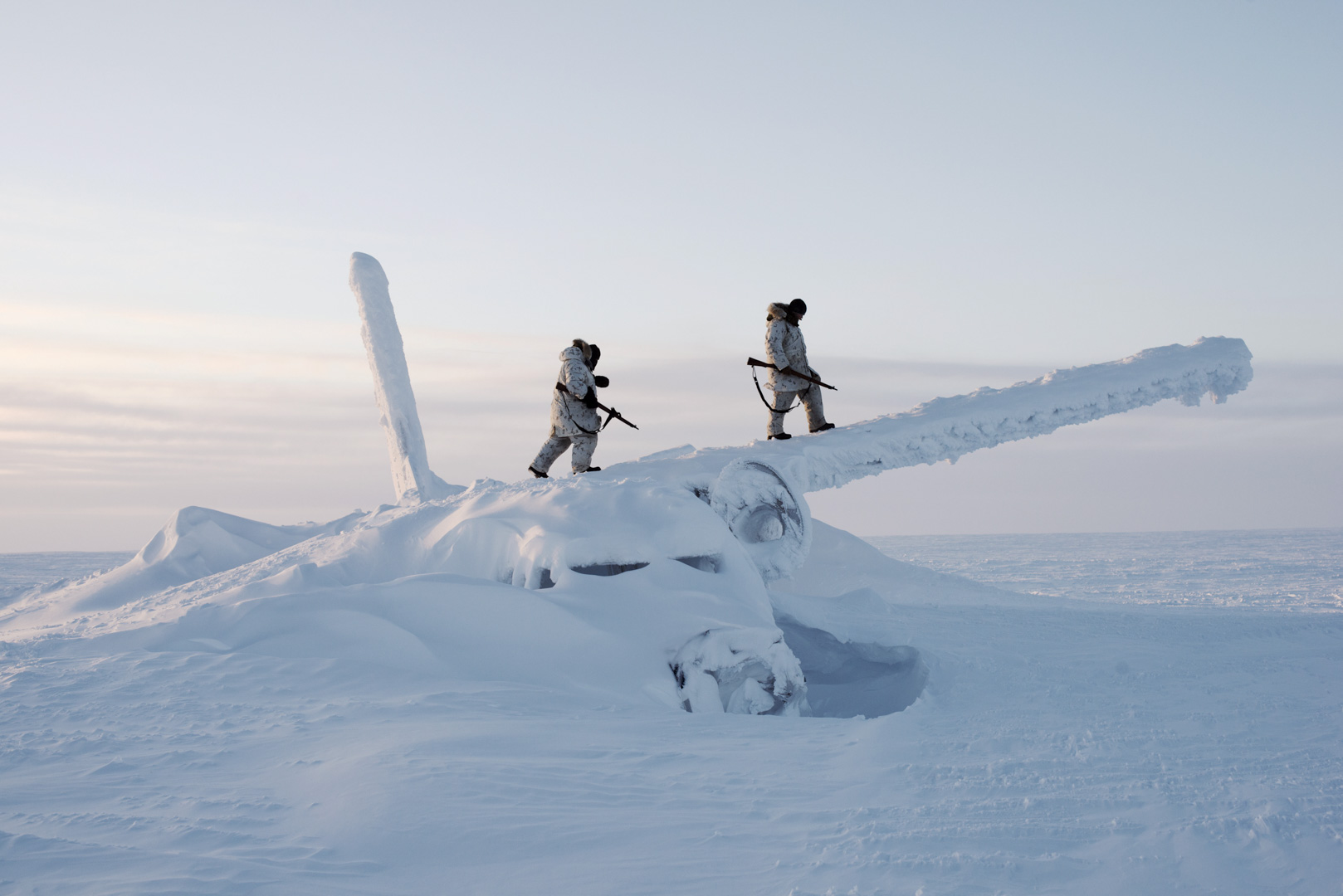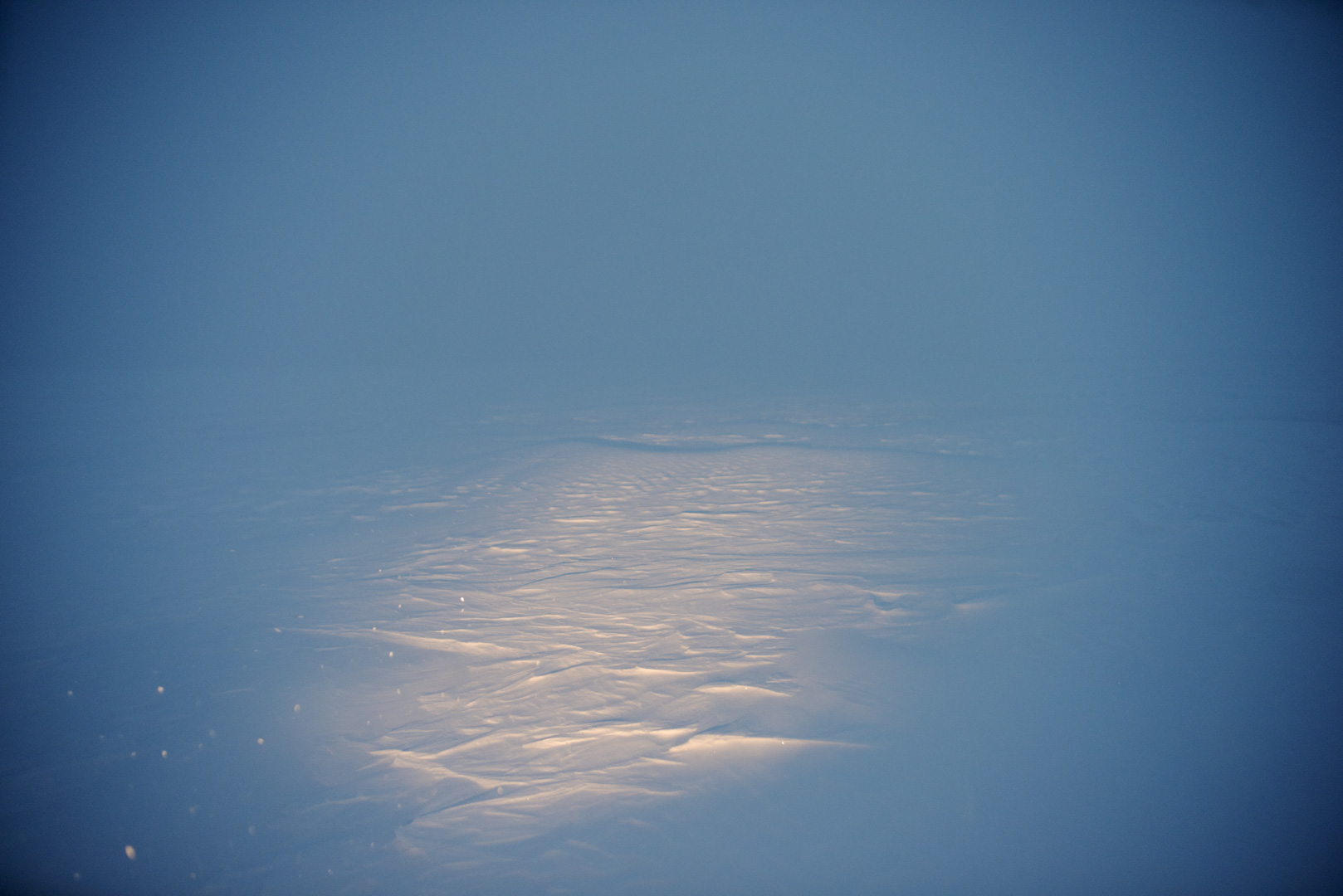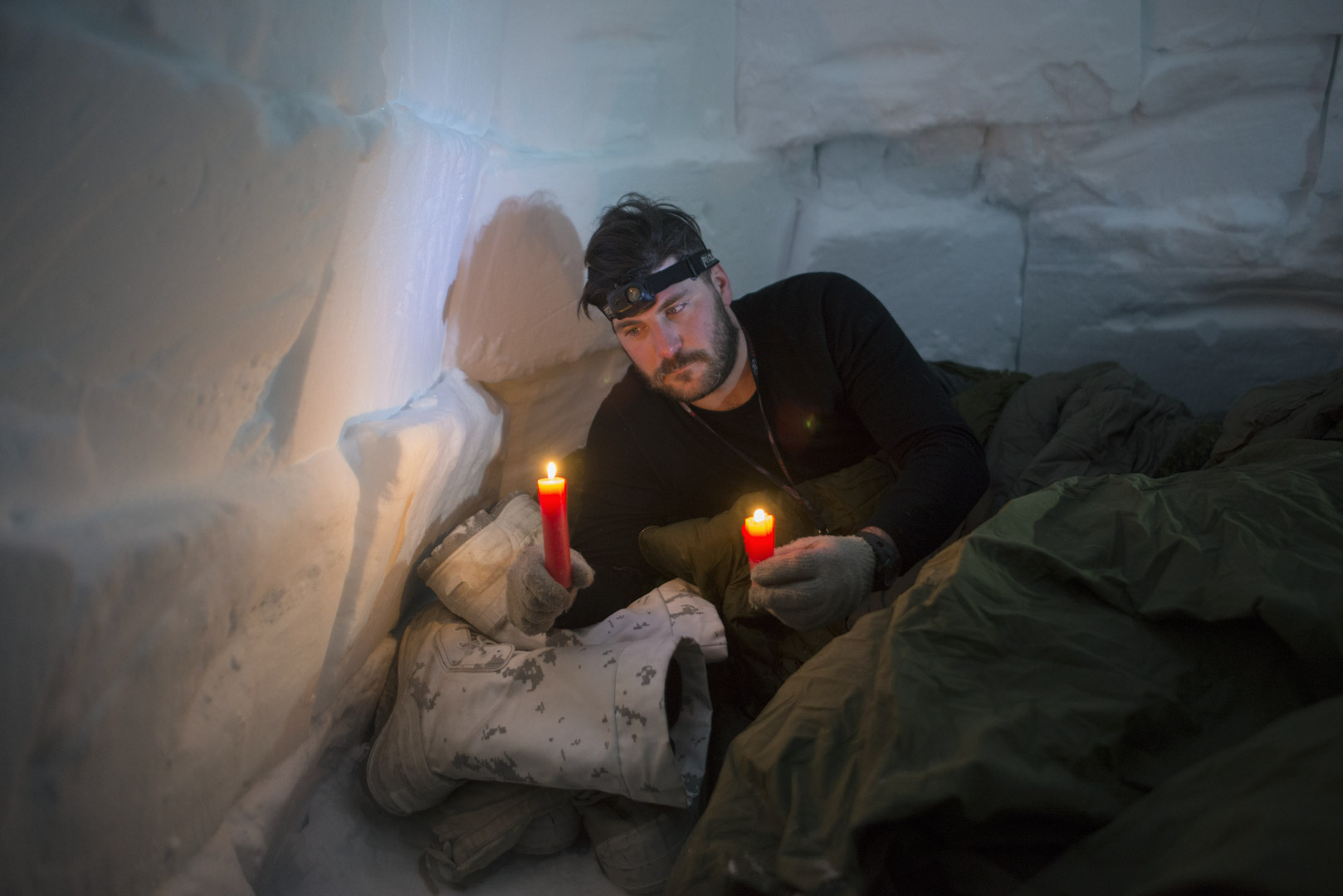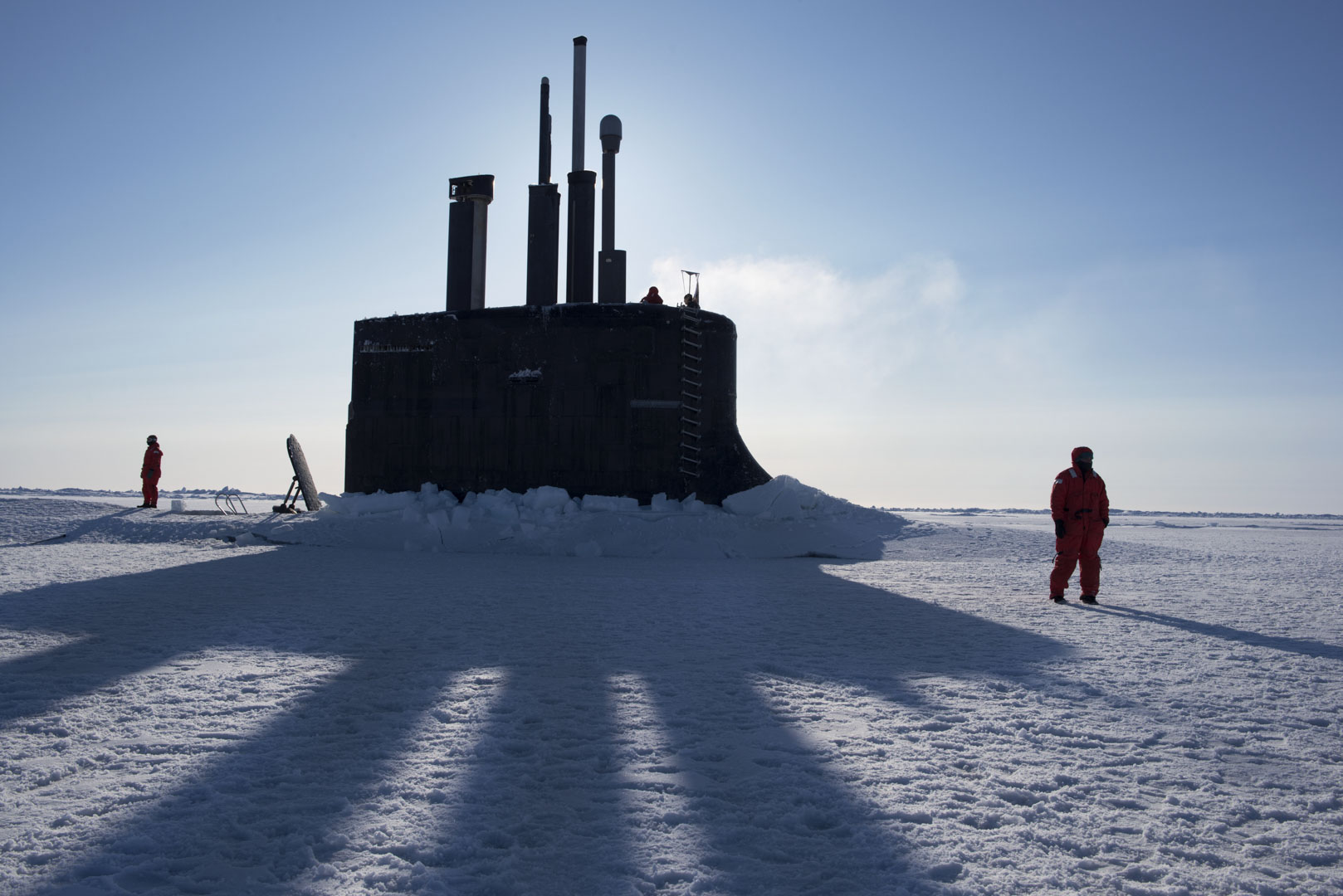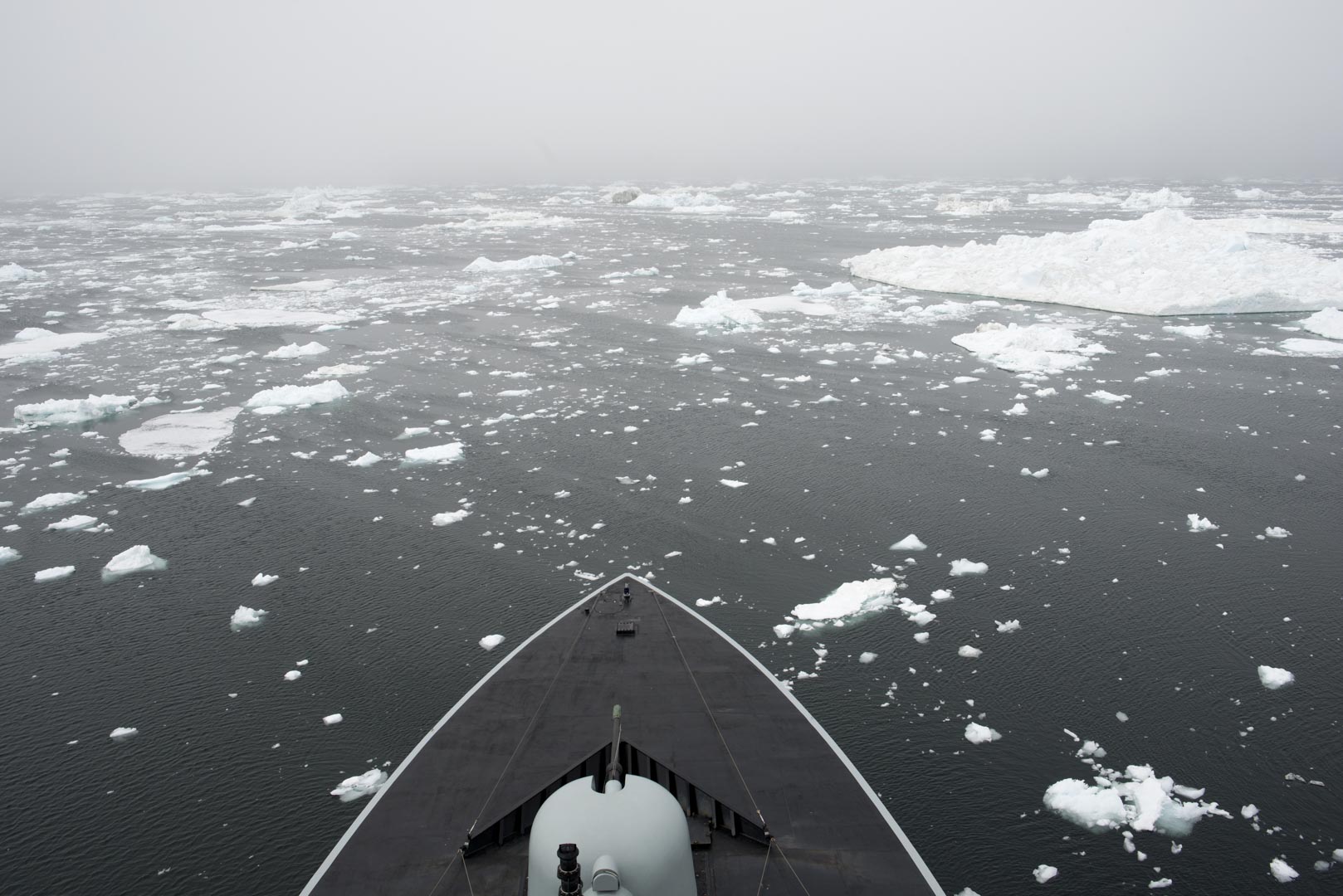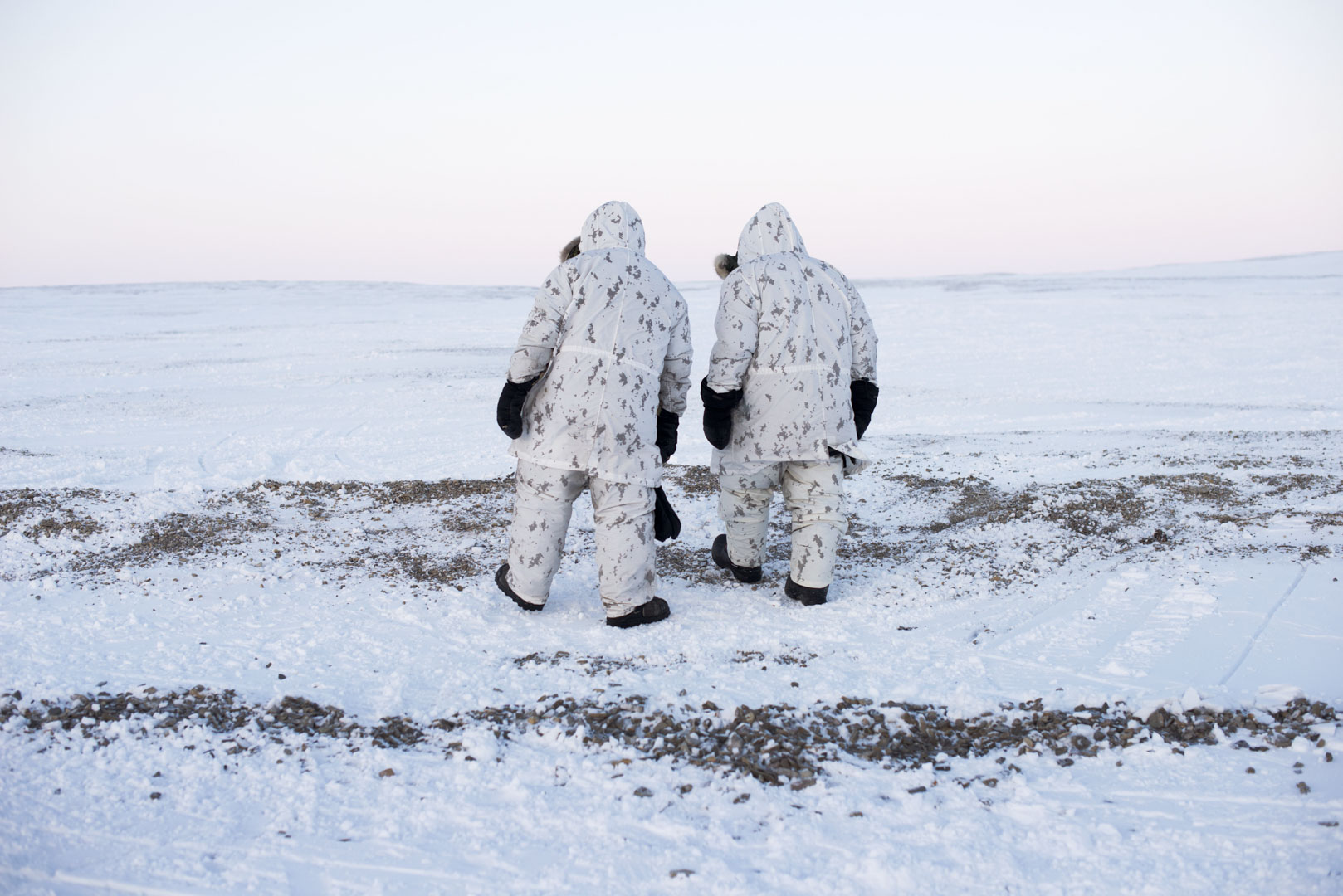Distant Early Warning, 2015-ongoing
The project Distant Early Warning shows the gradual militarization of the Arctic, documenting legacies of the Cold War and increased military presence. Changes in the region have been exacerbated by other issues, in particular by global warming. The ongoing project over a number of years examines mounting geopolitical tension and changing lifestyles of indigenous communities in one of the most extreme and challenging environments on the planet. The security narrative is driven in part by the prospect that with the ice melting, natural resources and new shipping routes will become part of a new northern economy. Many countries interested in these natural resources and economic opportunities therefore want to stake claims on this new geographic frontier. The Arctic is now at an unprecedented moment in history. In 2007 a Russian submarine planted a Russian flag on the seabed at the North Pole, triggering what is now called the new Cold War. One of the earliest moments of modern military activity in the Arctic was in the 1950s when the United States and Canada built a series of radar stations: the Distant Early Warning Line, designed to detect any missiles or bombers over the Arctic. More recently, the Arctic nations of Canada, Finland, Greenland (via Denmark), Iceland, Norway, Russia, Sweden and the United States, plus other countries with economic
interests in the Arctic such as China, have been increasing their logistical and military capabilities to ensure access to the region and assert sovereignty; certain countries have endeavored to stake territorial claims extending to the North Pole. Political tensions that once ran East-West now include military and political control aiming north. While this is certainly not a shooting war in the Arctic, soldiers on the ground are now preparing to work in one of the most inhospitable environments on earth, where the killer, in winter, is the outside air temperature.
For me, the Arctic is about the unknown, about our imagination. It is often seen through a map, cliché images of ice and animals, outdated stereotypes of indigenous peoples and scientific statistics. It can also be a blank slate for invented narratives to suit fantasies of what people want the Arctic to be. I would like to challenge such perceptions and prompt a shift in consciousness, producing work to make us ask questions about a critically important part of our planet that will reshape not only our environment but also our ideas and strategies of security for the context of global warming.
